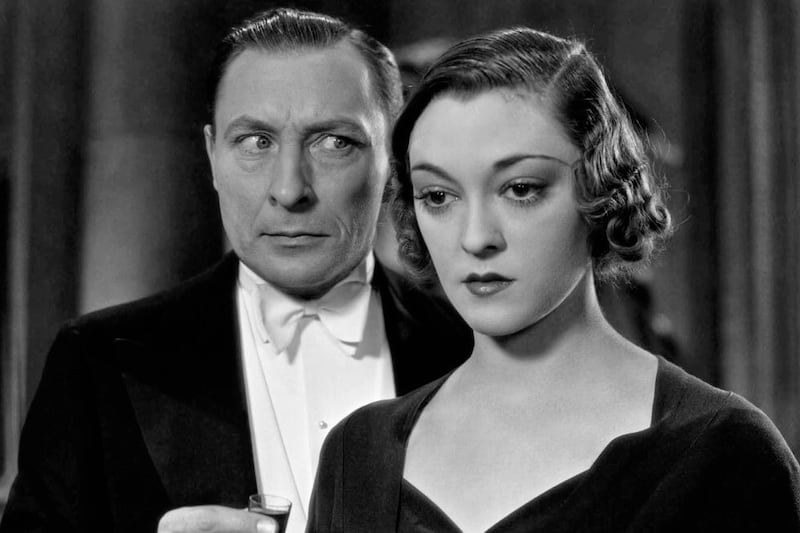Eureka by Anthony Quinn, published in hardback by Jonathan Cape, priced £14.99 (ebook £9.99).
SET to the soundtrack of The Beatles in London's swinging Sixties, Anthony Quinn's Eureka is chock-a-block with sex, drugs and rock 'n' roll. There's also gangsters, arson, unrequited love and the decriminalisation of homosexuality.
Gregarious screenwriter Nat Fane is where he loves to be – at the centre of attention. Through him, we meet aspiring actress Billie Cantrip, journalist Freya Wyley, German wunderkind film director Reiner Werther Kloss and gangster kingpin Harry Pulver, as well as a host of other film types. The story follows the filming of Nat's latest screenplay, a Henry James adaptation fuelled by acid trips and written almost scene by scene as they're filming it.
The drama of Nat's script parallels the drama of his own life, so closely that characters and stories seem to merge into one.
Nat's flamboyant fashion and passion for kinky bedroom games balance out the more mundane details of Quinn's historical fiction, which is completely immersive and compelling.
Rebecca Wilcock
How To Stop Time by Matt Haig, published in hardback by Canongate, priced 12.99 (ebook £6.74)
TOM Haig fans will recognise the main theme of his sixth adult novel as a refrain that has pulsed through his previous works.
This fantasy/adventure story, to be made into a film starring Benedict Cumberbatch, centres on Tom Hazard, a man who is more than 400 years old – an "albatross" who ages at an incredibly slow rate and has sworn not to fall in love with a normal "mayfly" human.
Still mourning his centuries-old first love, Rose, Hazard meets Camille, who sparks a process of self-discovery in which he questions what it is to really live.
Now a humble secondary school history teacher, Hazard reflects on his time as a lute player recruited by Shakespeare to play in the Globe, crew member on Captain Cook's voyage, and jazz pianist bumping elbows with F Scott Fitzgerald in a boozed up corner of Paris.
Despite the centuries and continents spanned, the most challenging terrain is internal, as he comes to accept himself as he is.
This is a refreshing exploration of how to make peace with one's past selves and future possibilities in a hyperactive modern world.
Jemma Crew
The Dinner Party by Joshua Ferri, published in hardback by Viking, priced £14.99 (ebook £9.99)
REALISTICALLY flawed humans populate the pages of Joshua Ferris' collection of short stories. They make bad decisions and act selfishly in 11 bleak tales, which follows Ferris's acclaimed novels Then We Came To The End, The Unnamed and To Rise Again At A Decent Hour.
Occasionally, Ferris offers a chink of hope in the darkness or a great observation about human nature, but many of the miserable relationships he describes just seem doomed.
His mainly male protagonists struggle to connect with others, battle insecurity and treat people carelessly or sometimes cruelly.
A few unexpected twists make reading worthwhile, but it's a challenging rather than enjoyable read.
The Dinner Party, A Night Out, The Breeze, Fragments and The Stepchild are particularly worth reading for the well-written and realistic portrayal of long-term relationships, but it might be an idea to line up something more cheerful to read afterwards.
Beverly Rouse
The Hidden Room by Stella Duffy, published by Virago, priced £16.99 (ebook £8.99)
FROM television and plays to books across a variety of genres, Stella Duffy is a woman of many talents. The Hidden Room, her 15th novel, signals her return to crime writing after a 12-year break.
Laurie is a woman who keeps secrets. Although she has achieved success in the world of work and is blessed with wife Martha and children Hope, Jack and Ana, her past life in 'the community' threatens to overwhelm her.
To stay sane, she parcels off physical and mental space for herself where old wounds can pulse with the dull pain of remembrance. Unfortunately, memories slowly become reality as ghosts from her past become intimately involved with her family.
There's nothing wrong with Duffy's storytelling – however, the most intriguing moments came so close to the end, it was difficult to feel the full strength of them.
The cliff-hanger ending feels gratuitous and unsurprising. Perhaps a sequel is in the offing to answer all the questions we are left with?
Taylor Heyman






